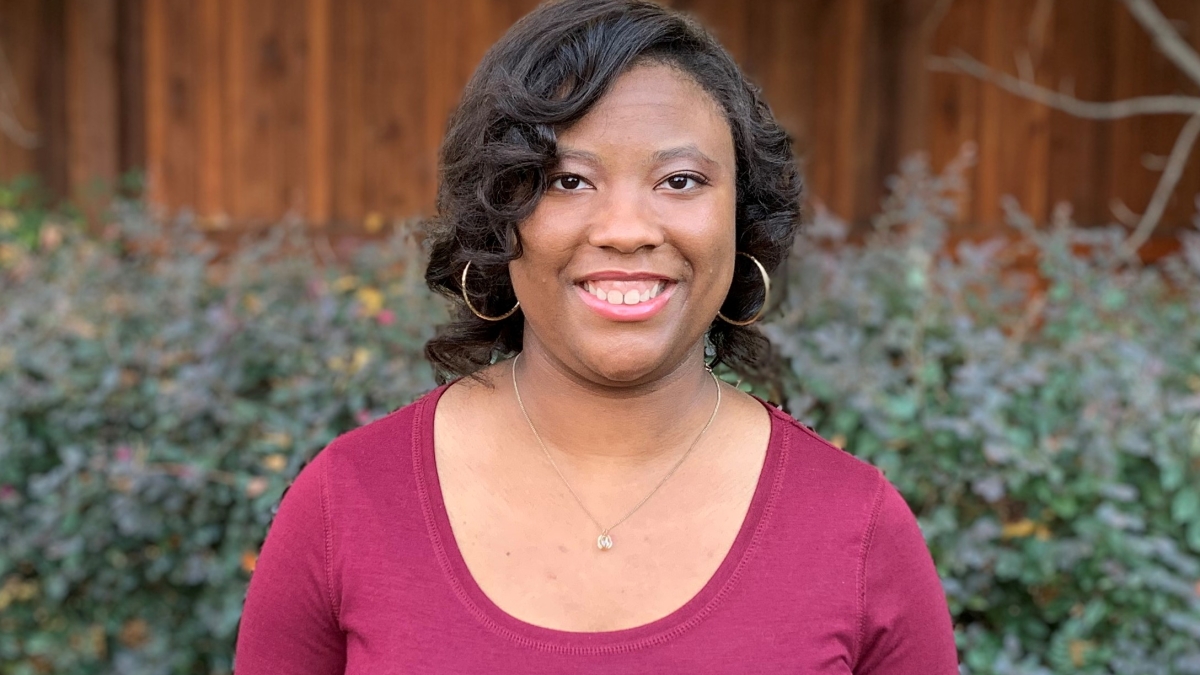The humanity in data analysis

ASU alum Courtney Stowers works as a data analyst for a nonprofit organization that focuses on evaluating and improving health care quality at Centers for Medicare and Medicaid Services. Photo courtesy Courtney Stowers
Although she didn’t always have a chosen career in mind, former Sun Devil Courtney Stowers knew she loved two things: math and people.
As a first-year student at Arizona State University, Stowers thought she would end up either a pediatric allergist or a middle school math teacher. There didn’t seem to be many other careers that could combine the two vastly different topics.
Then Stowers discovered family and human development.
After enrolling in science and education classes, she realized she needed to try something else, so she took on a class in human development as a half-semester replacement. She enjoyed it more than expected.
“Human development covered all the topics that had originally drawn me to health care and education, but it also incorporated research studies that involved statistical charts and reports. I immediately fell in love!” she says.
After taking one course, Stowers changed her major to family and human development, then added a degree in applied quantitative science shortly after. The two perfectly paired her love of numbers and people.
Related: Killam Fellow studies abroad in Canada
After completing her dual degrees, Stowers didn’t want to stop, so she completed a master’s degree program in program evaluation and data analytics in 2020. Now she works as a data analyst for a nonprofit organization that focuses on evaluating and improving health care quality at Centers for Medicare and Medicaid Services (CMS). Her day-to-day work includes using data to evaluate patient safety, provider quality and demographic disparities.
“I thoroughly enjoy the problem-solving aspect of my work,” she says. “Writing code and queries is a lot like solving word problems. I also like knowing that my work has a real-world impact on patients and health care providers who benefit from safer, more equitable health care facilities.”
Stowers says she is extremely satisfied with her career and still gets excited to analyze data sets in her spare time. As a volunteer, she has analyzed urban forests and the environment, voter engagement, policy advocacy and even her favorite music genres on Spotify.
Her experiences in the family and human development program were critical to her career, she says.
“Understanding the aging process and the various health concerns that are relevant to older adults has been very beneficial in comprehending some of the direct and indirect factors that impact the vulnerable populations that CMS serves," she says. "It’s helpful to have social context behind the need for the evaluations that ensure older and underserved patients receive the best care possible.”
Stowers is proof that students can combine all kinds of interests to pursue an interdisciplinary career. Almost three years after graduating, she encourages students to pursue what truly interests them, even if the career pathway isn’t yet clear.
“I liked people and I also liked numbers,” she says. “I think you’ll find that there are a lot of niches out there and there are a lot of intersections between topics that you’re interested in.”
Stowers also advises current students who are having difficulty finding a suitable career to reach out to ASU’s career services department.
“ASU has a really great career services department. When I wasn’t really sure what I wanted to do, I reached out and they had … all these different advisors that specialize in different topics and they can help guide you on how to turn that passion into a career."
More Science and technology

Breakthrough copper alloy achieves unprecedented high-temperature performance
A team of researchers from Arizona State University, the U.S. Army Research Laboratory, Lehigh University and Louisiana State…

4 ASU researchers named senior members of the National Academy of Inventors
The National Academy of Inventors recently named four Arizona State University researchers as senior members to the prestigious…

Transforming Arizona’s highways for a smoother drive
Imagine you’re driving down a smooth stretch of road. Your tires have firm traction. There are no potholes you need to swerve to…

